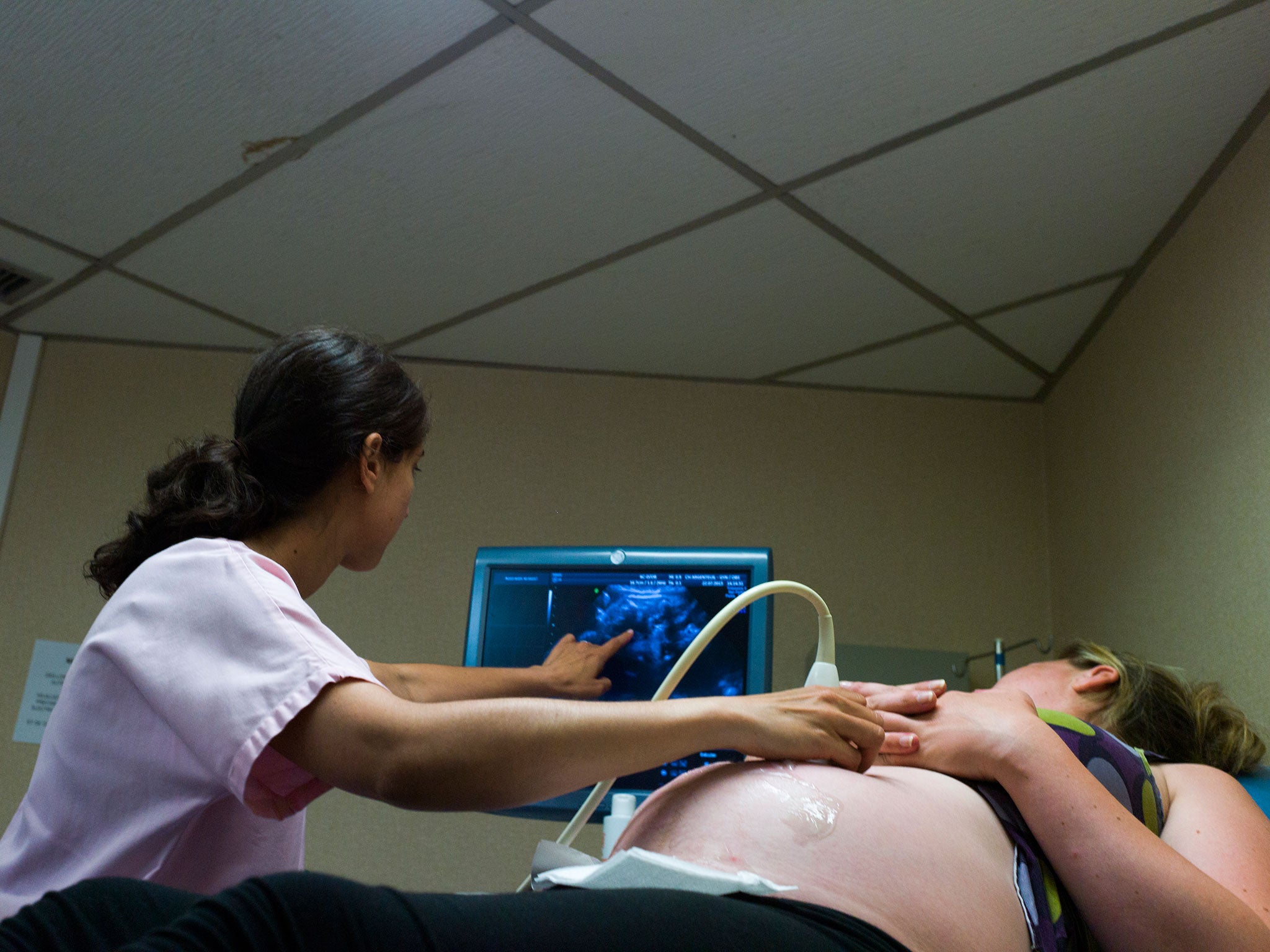£15 Doppler scans could save 1,900 babies’ lives a year, says leading obstetrician
Professor Kypros Nicolaides believes routine use could cut number of stillborn babies by as much as 60%

Hundreds of stillbirths could be prevented every year if the NHS introduced a scan that costs just £15, a leading obstetrician has claimed.
Professor Kypros Nicolaides believes routine use of Doppler scans across the UK could cut the number of stillborn babies by as much as 60 per cent, potentially saving 1,900 babies’ lives a year.
Each year more than 3,000 babies are stillborn in the UK, one of the worst rates in the developed world.
Prof Nicolaides, who runs a clinic at King’s College hospital in London, has spent 15 years researching Doppler scans, which measure the flow of blood between the placenta and the unborn child.
Many deaths are caused by a failure in the placenta, which can restrict the flow of blood to the baby, starving it of nutrients and oxygen. Often problems occur towards the end of the pregnancy in mothers with no previous problems.
“We have demonstrated through extensive research that you can identify more than 90 per cent of those cases from the 12-week assessment,” Prof Nicolaides said in a BBC Panorama programme broadcast last night. “We can easily avoid them and we can do so through very simple adjustments in the way we deliver antenatal care.”
All pregnant women who attend his clinic are offered the scans at 12, 22 and 32 weeks of pregnancy.
The Department of Health said it had asked Prof Nicolaides to submit his research so his treatment protocols could be considered for wider use in the NHS.
But a spokesman for the department added: “The NHS is a safe place to give birth, with women reporting high levels of trust and confidence in staff.”
St George’s Hospital in London has introduced the scan for all first-time mothers at 20 weeks and has seen its stillbirth rate drop by 50 per cent in the two years since it was introduced.
NHS England is also encouraging hospital trusts to adopt an even cheaper method of cutting stillbirth rates – this time by up to 22 per cent.
Prof Jason Gardosi, director of the Perinatal Institute in Birmingham, set up the Growth Assisted Protocol (GAP). It works by giving each mother-to-be a customised growth chart which tells her how large her baby is expected to be for each week in the pregnancy.
If the baby’s growth falls outside the expected norm, the mother is sent off for extra scans to check that the baby is thriving. Almost two thirds of Britain’s hospital trusts have signed up.
Shavon Perkins, 35, and Richard Little, 36, of Eltham, London, lost their son Joseph in February this year when he was stillborn at 41 weeks.
“A [Doppler] scan would absolutely have saved his life,” Ms Perkins said, although she added that other warning signs had been missed.
Join our commenting forum
Join thought-provoking conversations, follow other Independent readers and see their replies
Comments
Bookmark popover
Removed from bookmarks